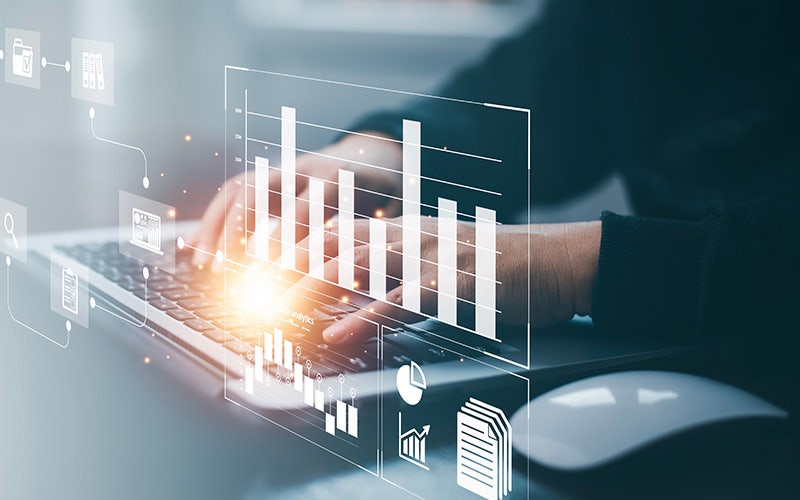Selecting the right MBA with Accounting programme

So, you’re considering a Master of Business Administration degree, and want to focus on accounting? Congratulations – this may just be one of the best steps you could take towards a highly rewarding, lucrative, and career in financial management.
MBA degrees are highly regarded as developing students’ diverse, in-depth skillset related to business leadership and management, and helping them stand out from other applicants in saturated, competitive job markets.
Why study an MBA with Accounting degree?
By choosing an MBA with an accounting specialisation, you’re boosting your future earning potential, career prospects and employability, business acumen, and competitive edge – and much more.
As an MBA student specialising in accounting, you can expect to:
· broaden your skillset while narrowing your area of focus. While it may sound like a contradictory statement, the beauty of MBA specialisations – of any type – is that they offer significant leadership and management training alongside specific training in areas of interest or need. Assuming your career aspirations lie in accounting or finance, you’ll gain key expertise, experience and insights enabling you to work in those fields, while developing a highly advanced, transferable business skillset that lends itself to any senior management position.
· cultivate your professional network. Networking opportunities are frequently cited by MBA graduates as one of the greatest benefits of MBA study. Whether it’s access to alumni networks, internships and work experience opportunities, contact with industry experts, or your relationships with other MBA students, great things can come from the connections you make during your studies.
· maximise your employability and career prospects. MBA courses that feature specialist accounting skills and acumen can unlock higher-level, better-paid job roles across finance, consulting, management, and similar occupations. Your master’s degree is evidence of your comprehensive, well-rounded understanding and experience of both business management and financial principles.
· prepare for industry-standard professional examinations. Some graduate programmes and MBA degrees enable students to take the required managerial accounting or financial accounting courses that contribute towards official CPA exams – that are recognised globally – during their studies. Where this isn’t the case, accounting MBAs still offer excellent preparation if this is a future ambition of yours.
Of course, completion of any traditional or online MBA programme is also evidence of your commitment to ongoing learning, professional development, industry expertise, resilience, adaptability, personal organisation, and investment in yourself and your future. Each of these attributes is likely to be highly valued by future employers and recruiters.
Factors to consider when choosing an MBA with Accounting programme
Choosing the right MBA programme for your individual needs requires careful thought and research – but the perfect one will be out there.
In order to find the best MBA programmes, you’ll want to reflect some key factors:
· Where you’d like to study. Is it important to you that the university, business school or graduate school places highly in national or international rankings, or that the course features accreditations or certifications? Are you after a local, national or international institution?
· How you’d like to study. What type of MBA are you after? Are you looking for an in-person, campus-based learning experience or would a distance learning or online MBA suit you better? Are you interested in a full-time MBA, part-time MBA, or fully flexible MBA? Do you intend to work alongside your studies? What would your ideal learning experience look like? Do you prefer self-guided learning, coursework, group work, or examinations?
· What you’d like to study. Does the course offer accounting or other relevant electives that would fulfil your training needs? How does the course content align with the training you’ll need to achieve your career goals? Are there specific development areas or skillsets that you want to focus on – and are these covered in the curriculum? How much freedom would you like to select the individual business topics you study? Do you want a straightforward MBA, an Executive MBA, a Global MBA, or another type of MBA? Are there core courses and disciplines you’re interested in?
· When you’d like to study. How soon would you like to begin your studies? Is there a particular time of the year that would work best for you? Would you like to study during the day, the evening, at weekends, or whenever you choose to?
· Your future career ambitions. Do you want to work as an accountant, or would you like to develop advanced financial skills that will give you a competitive business edge in a broader sense? How will your MBA factor into your future advancement? Is it a prerequisite of landing a more senior position, or are you looking to switch careers or sectors?
· Your individual circumstances. What are your academic credentials (for example, bachelor’s degree, master’s degree, or GMAT score) – and do they meet the requirements for an MBA application? What professional or industry experience do you have? Is it important that the institution offers scholarships or other types of financial aid? Are there accessibility, responsibility, or other personal circumstances that need to be factored into your choice?
Still confused? The AACSB (Association to Advance Collegiate Schools of Business) suggest 10 questions to ask yourself before applying for an MBA that will also help you to identify your ideal degree programme.
What is the job outlook for MBA with Accounting graduates?
As businesses and global industries cannot function without effective financial management, accounting is considered a highly stable field – great news if you’re seeking a profession with longevity and career progression.
According to the U.S. Bureau of Labor Statistics (BLS), there were nearly 1.5 million jobs for individuals in the accounting and auditing space in 2021 (in the U.S.), with job growth projected at 6% until 2031. Furthermore, job growth for financial managers specifically is projected at 17% between 2021-2031, indicative of the higher-level positions that MBA accounting grads could expect to land. For context, this growth is faster than the national average for all job categories combined.
Ready to apply for an advanced master’s that combines business management skills with accounting?
Excel in business leadership roles – and use your in-depth financial knowledge to guide businesses to success – with St Mary’s University’s online MBA with Accounting programme.
Hone your critical thinking, strategic management and decision-making skills, on a highly flexible, reputable programme that takes place entirely online. Whether you’re preparing for senior roles within financial services and financial management organisations, or seeking to launch your own business, we’ll help you to develop the skills you’ll need. Your specialist accounting studies will encompass cost accounting, managerial accounting, and financial analysis. Additionally, you’ll study a wide range of engaging topics designed to maximise your business skills and knowledge, including project management, business analytics and data analytics, supply chain and operations management, entrepreneurship, leadership, international business, marketing, strategy, and human resources.














The information below is required for social login
Login to your Account
JOIN FOR FREE
Let’s begin with setting up your account to keep track of your progress